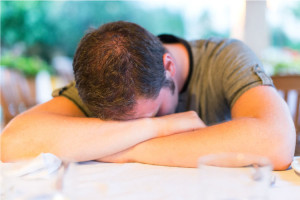
Contributor: Crystal Karges, MS, RDN, IBCLC Special Projects Coordinator at Eating Disorder Hope/Addiction Hope
Addiction often appears in many different forms, though some people may think of an addiction as something involving drugs or alcohol. The reality is that many individuals struggle with addiction to multiple things, including gambling, sex, food, and even shopping.
Anything taken to or used habitually in an extreme measure can be considered an addiction, particularly when a person is using a substance or behavior to avoid something or as a coping mechanism.
Compulsive Buying
Many people may not consider shopping to be something that becomes an addiction, but unfortunately many individuals struggle with compulsive shopping and addiction.
Research has shown that one in twenty adults nationwide suffer from compulsive buying, including both women and men [1].
Individuals who struggle with compulsive buying disorder may be frequently preoccupied with the need or impulse to buy or purchase unneeded items, often more that can realistically be afforded.
Compulsive shoppers are often addicted to the act of shopping itself, not necessarily with the items in which they are buying. For some individuals, this may be:
 Clothes
Clothes- Home goods
- Electronics
- Tools
- Shoes
- Books
- Craft items
- Makeup
- And more
Items that are purchased compulsively are often acquired but never used. It is not uncommon for a compulsive shopper to begin collecting items they are purchasing, many which will often stay in the original packaging, remain unwrapped, and go unused.
Consequences of Compulsive Shopping Disorder
The consequences of compulsive shopping or compulsive shopping disorder can be detrimental for both the individual and their loved ones involved.
Many people who struggle with compulsive buying are also dealing with adverse effects, such as:
- Financial debt
- Bankruptcy
- Illegal activities
- Conflict in families and relationships
- Divorce
- And more

Many individuals who are compulsive buyers often have co-occurring behavioral or psychiatric disorders, such as a mood disorder, or underlying emotional distress.
If you have a loved one who is struggling with compulsive buying, you may feel at a loss in terms of how to approach them and this sensitive issue. If you and your family are being negatively impacted by the shopping habits of your loved one, you may struggle with many overwhelming emotions related to this, such as feeling frustrated, angry, distressed and more.
You may be doing everything within your power to keep your family afloat amidst challenging financial situations that have results from the compulsive shopping and spending habits of your loved one. Perhaps this has created conflict between you and your loved one that has caused relationship issues.
Get Help
Seeking out professional help to deal with this complex situation can be invaluable. Individuals who struggle with compulsive shopping or compulsive buying often have developed this disorder as a result of many complex factors, many of which may be out of their control.
While your initial reaction may be to feel frustrated, sad, or angry, having a better understanding of the underlying issues associated with the compulsive shopping may help give you a better perspective on the issue.

Working with a professional counselor/therapist or marriage family therapist who specializes in compulsive shopping and buying disorder can help your family work through and resolve many of the issues that you are facing.
In order to get to this point however, it is important for you to have a discussion with your loved one about your concerns and your desire for them to seek out help, care and treatment.
Have a discussion with your loved one in a setting that you both feel comfortable and safe in to encourage a productive conversation. Approaching your loved one calmly and compassionately can help the delivery of what you are trying to say, especially for a sensitive topic and issue.
Express your concern in a loving and gentle way rather than coming across as though you are attacking them. It may be helpful to work through your own emotions before having a discussion with your loved one, so consider seeking out counsel for yourself as a means of support during a difficult time.
References:
[1]: Psychiatric Times, “Compulsive buying disorder affects 1 in 20 adults, causes marked distress”, http://www.psychiatrictimes.com/articles/compulsive-buying-disorder-affects-1-20-adults-causes-marked-distress

About the Author: Crystal is a Masters-level Registered Dietitian Nutritionist (RDN) with a specialty focus in eating disorders, maternal/child health and wellness, and intuitive eating. Combining clinical experience with a love of social media and writing, Crystal serves as the Special Projects Coordinator for Eating Disorder Hope/Addiction Hope, where her passion to help others find recovery and healing is integrated into each part of her work.
As a Certified Intuitive Eating Counselor, Crystal has dedicated her career to helping others establish a healthy relationship with food and body through her work with EDH/AH and nutrition private practice.
The opinions and views of our guest contributors are shared to provide a broad perspective of addictions. These are not necessarily the views of Addiction Hope, but an effort to offer discussion of various issues by different concerned individuals.
We at Addiction Hope understand that addictions result from a combination of environmental and genetic factors. If you or a loved one are suffering from an addiction, please know that there is hope for you, and seek immediate professional help.
Reviewed By: Jacquelyn Ekern, MS, LPC on January 11, 2016
Published on AddictionHope.com

